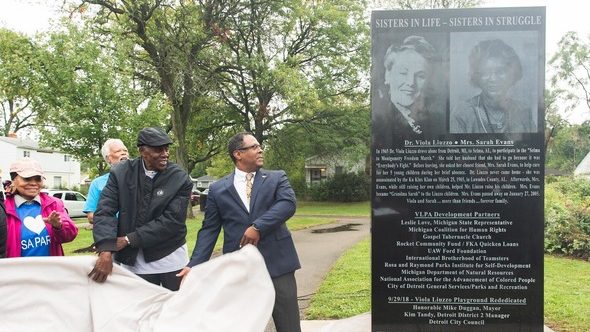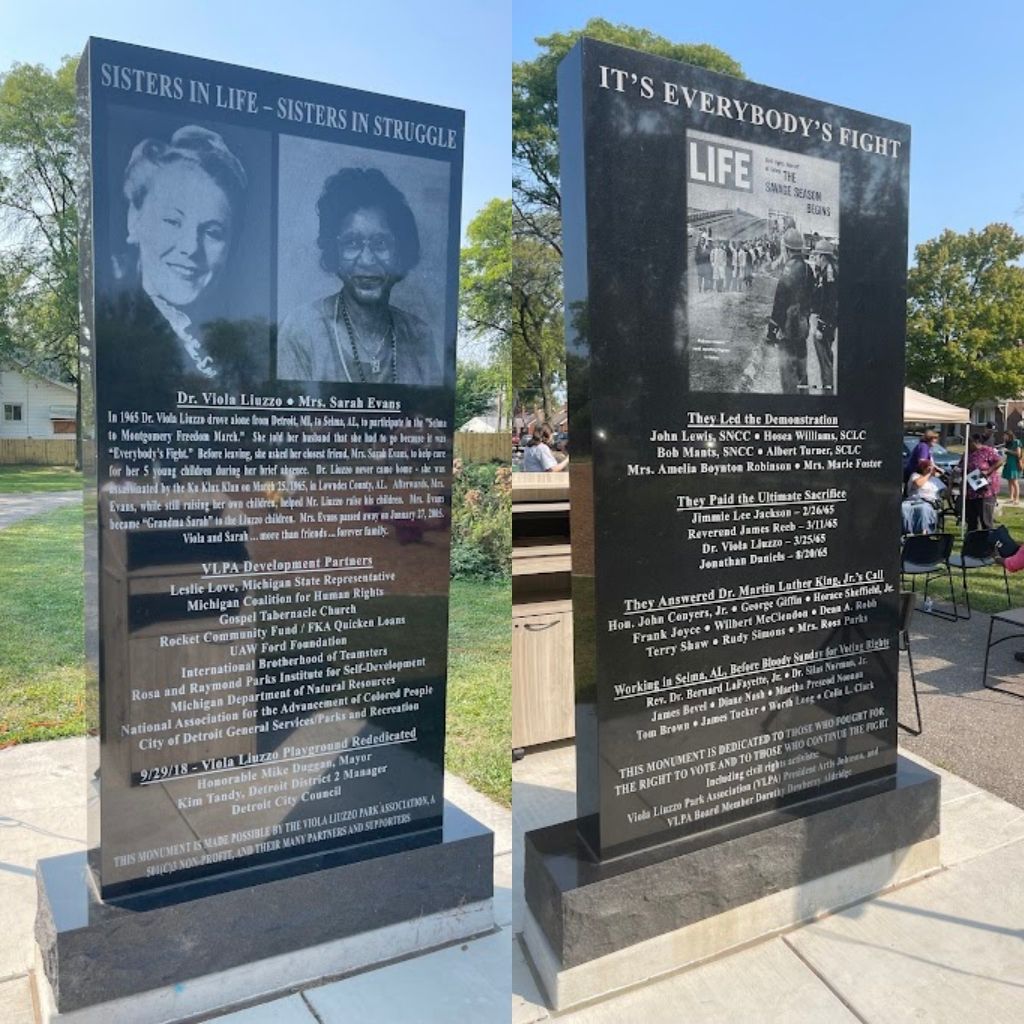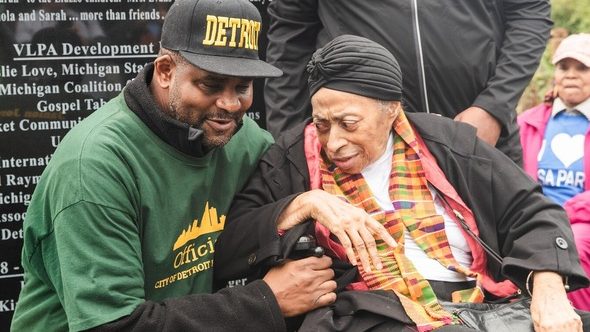Civil rights monument unveiled in Detroit reflects on voting rights struggle
Bre'Anna Tinsley September 17, 2024As voters prepare to head to the polls again in November, a new monument in Detroit commemorates the long journey toward voting rights for all.

Detroit Deputy Mayor Todd Bettison (right) joins Viola Liuzzo Park Association President Artis Johnson and Elaine Steele, co-founder of Raymond & Rosa Parks Institute and family members in unveiling the new monument.
The landscape of voting in Michigan has evolved significantly, with expanded early in-person voting, enhanced absentee ballot tracking, and permanent absentee ballot registration now available.
As voters prepare to head to the polls again in November, a new monument in Detroit commemorates the long journey toward voting rights for all.
The dedication ceremony for the Civil Rights Monument took place at Viola Liuzzo Playground, located at the corner of Winthrop and Trojan on Detroit’s west side. The monument honors Viola Liuzzo, a Detroit woman inspired by Dr. Martin Luther King Jr. who traveled to Alabama to participate in the Selma to Montgomery marches in 1965. Tragically, Liuzzo was murdered by the Ku Klux Klan in Lowndes County. Before her departure, she asked her friend, Sarah Evans, to care for her five children if anything happened to her—a promise that Evans kept.

The monument features images of Liuzzo and Evans with the inscription “Sisters in life…Sisters in struggle,” and on the opposite side, it lists the names of Detroiters who answered Dr. King’s call to support the Selma marches, including notable figures like Rosa Parks and John Lewis.
Dorothy Dewberry Aldridge, a civil rights activist and historian, described the monument as a “teaching monument,” intended to educate the public about the events of 1965.

Collette Mezza, also a member of the Viola Liuzzo Park Association, emphasized the significance of each name on the monument.
“They each have their own remarkable story, and what inspired them to go down to Selma in 1965, and many of them are still alive and many of them continue their activism like Dorothy,” Mezza said.
Michigan Secretary of State Jocelyn Benson, who attended the ceremony, said everyone today has an opportunity to continue the fight for voting rights.
“Let us all recommit to continuing on that legacy as a new generation of foot soldiers who are marching forward for democracy teaching about the past and being clear-eyed about the present challenges and the work we must do to preserve that sacred promise of democracy for everyone.”
The event concluded with a ceremonial march around the park, echoing the marches of 1965 and honoring those who fought for voting rights.
Support Detroit Public Radio.
WDET is celebrating 75 years of people powered radio during our 2024 Fall Fundraiser, now through Sept. 24. Become a member and invest in WDET’s next chapter of news, music and conversation.
